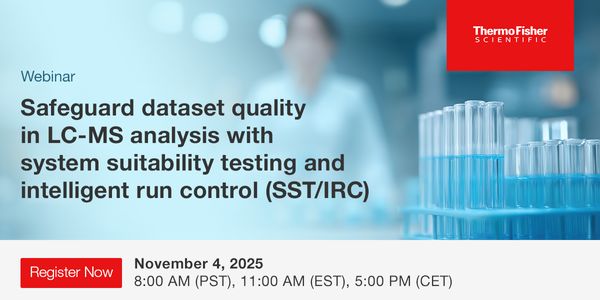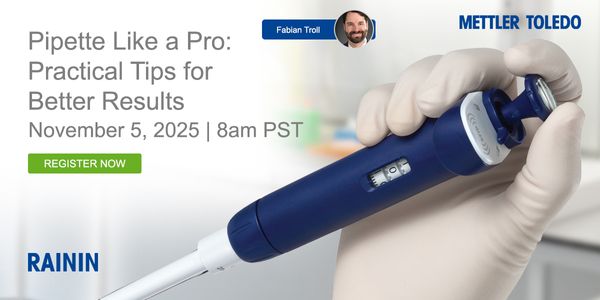Head of the Laboratory Clinical Microbiology of the St. Elisabeth Hospital Tilburg, The Netherlands
BIOGRAPHY

Speaker
Event Date & Time
Date: December 1, 2022
Time: 9:00am PST, 12:00pm EST, 6:00pm CET
Time: 9:00am PST, 12:00pm EST, 6:00pm CET
Abstract
98% of in-patients will undergo a diagnostic test during a hospital stay.1 With the increased focus on the accuracy of diagnostic test results needed to make informed decisions to treat outbreaks, antimicrobial resistance, and hospital acquired infections, optimizing your microbiology lab has never been more important. What does this look like? First, this means standardizing testing in the lab to produce consistent, timely quality results, and scaling the capacity of the lab to handle surges in patient specimen volumes. Next, it’s about accelerating turn-around time for specimen processing, so your lab can support the speed of diagnostic testing needed for clinicians to make the timely decisions required to manage their patients.2,3 During this webinar you will learn how automation, technology and change management can help improve your laboratory productivity KPIs and impact patient management.
Learning Objectives:
-
Describe how the combination of automated technologies and change management can improve laboratory capacity and productivity.
-
Illustrate how improvements in laboratory operational efficiency benefit turnaround time for patient results.
-
Understand how automated solutions for MALDI-ToF target preparation can help streamline labor-intensive laboratory processes
References:
- Ngo A, Gandhi P, Miller WG. Frequency that laboratory tests influence medical decisions. J ApplLab Med. 2017;1(4):410-414.
- Mutters NT, Hodiamont CJ, de Jong MD, Overmeijer HP, van den Boogaard M, Visser CE. Performance of Kiestra total laboratory automation combined with MS in clinical microbiology practice. Ann Lab Med. 2014;34(2):111-117. doi:10.3343/alm.2014.34.2.111
- Thomson RB Jr, McElvania E. Total Laboratory Automation: What Is Gained, What Is Lost, and Who Can Afford It?. Clin Lab Med. 2019;39(3):371-389. doi:10.1016/j.cll.2019.05.002
Webinars will be available for unlimited on-demand viewing after live event.
Labroots is approved as a provider of continuing education programs in the clinical laboratory sciences by the ASCLS P.A.C.E. ® Program. By attending this webinar, you can earn 1 Continuing Education credit once you have viewed the webinar in its entirety.
You May Also Like
NOV 04, 2025 | 8:00 AM
Even in the most controlled labs, balance performance can drift — electrostatics, air drafts, temperature shifts, or even the way samples are handled can quietly undermine your results...
NOV 04, 2025 | 8:00 AM
Unlock the full potential of your LC-MS system with Thermo Scientific™ Chromeleon™ software features. This webinar will demonstrate the system suitability test with intelligent r...
NOV 05, 2025 | 10:00 AM
Research in plant and animal genomics often involve complex genetic challenges that require tailored approaches. From addressing genetic complexity in aquaculture species to investigating tr...
NOV 05, 2025 | 8:00 AM
Do you use pipettes in your daily work? Want to improve your pipetting accuracy? To eliminate the guesswork, METTLER TOLEDO Rainin developed Good Pipetting Practice™ (GPP™) as a...
NOV 05, 2025 | 9:00 AM
BACKGROUND . Myelodysplastic syndromes (MDS) are a heterogeneous group of myeloid neoplasms with variable clinical outcomes and an increased risk of progression to Acute Myeloid Leukemia (AM...
Discover how MSK-IMPACT® Flex with SOPHiA DDM™ enables modular, cost-efficient genomic profiling with flexible DNA/RNA biomarker analysis....
Loading Comments...
Please update your information
Certificate of Participation
Thank you for choosing Labroots. Please note that a Certificate of Participation does NOT count towards Continuing Education Credits.
DOWNLOAD CERTIFICATE
DOWNLOAD CERTIFICATE
You must watch the entire webinar to receive your certificate of participation.
You must attend the event before receiving your certificate of participation.
You must register for the event first.
Certificate is no longer available for this event.
You must be logged in to retrieve your certificate.
Finish Registering
Attendees






